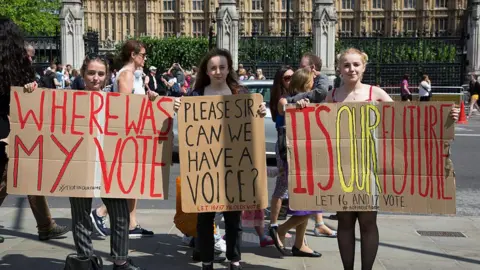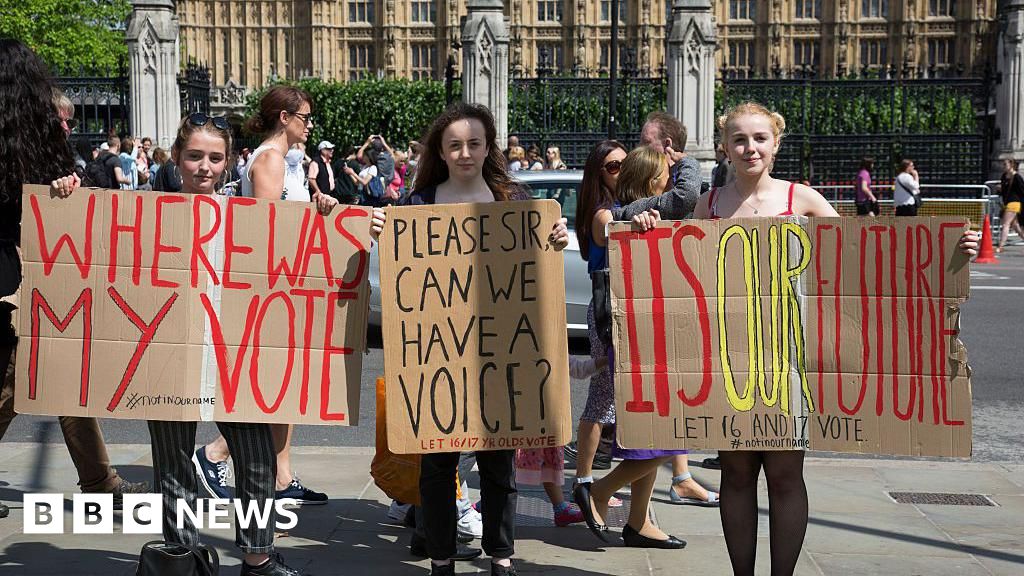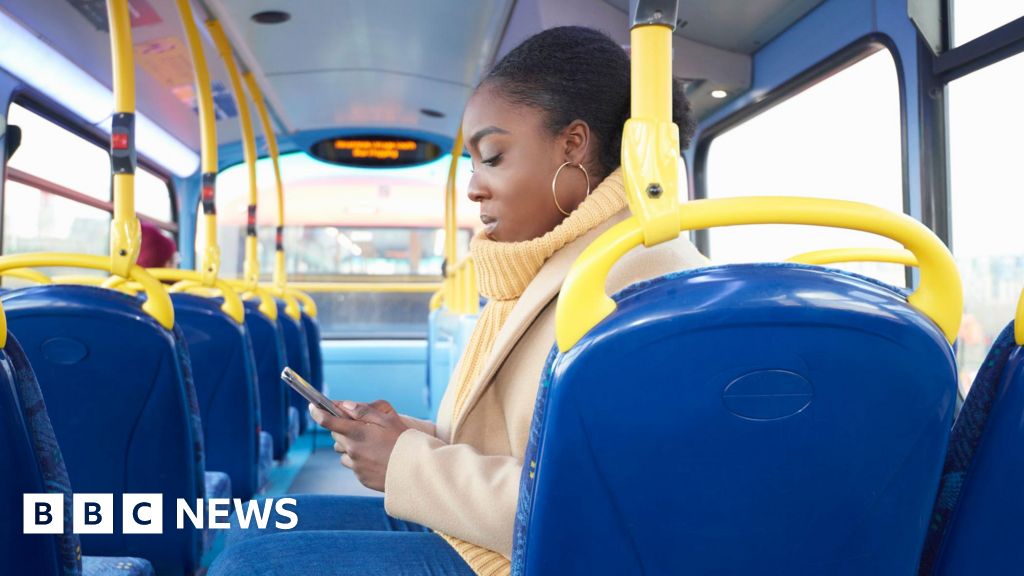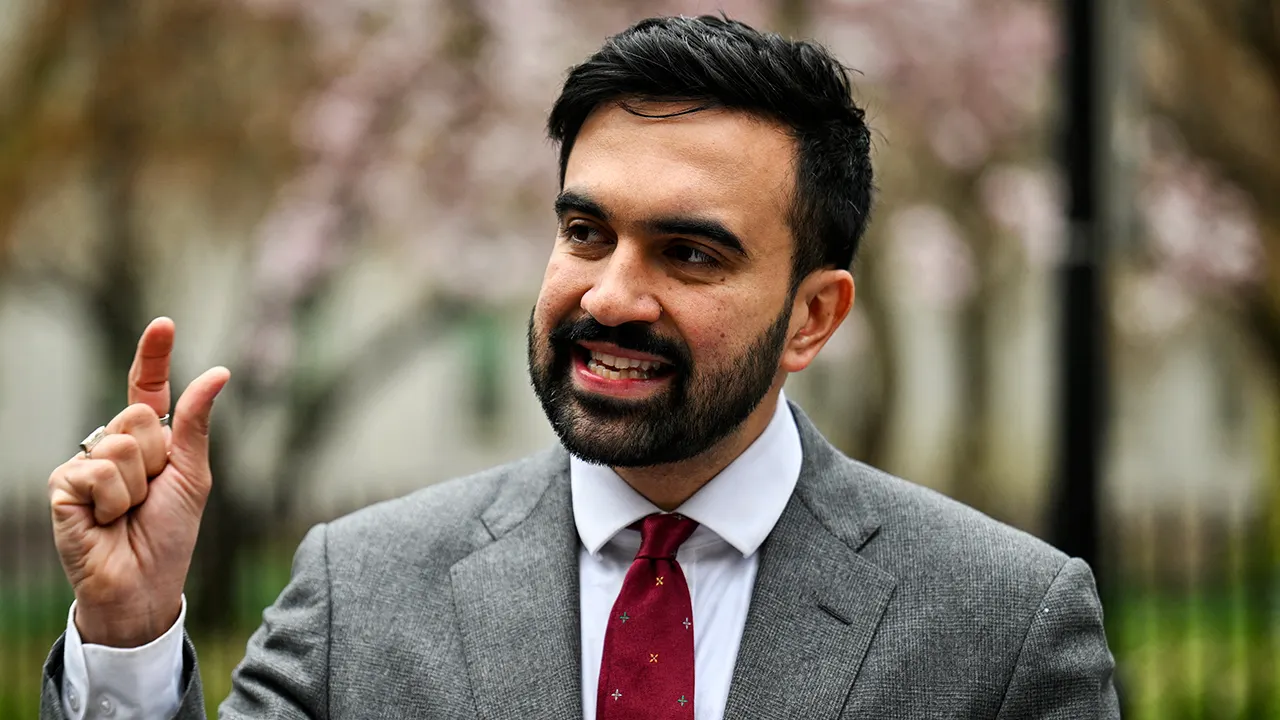Political reporter
BBC News
 In Pictures via Getty Images
In Pictures via Getty ImagesAround 1.5 million 16 and 17-year-olds would be able to vote at the next general election, under government plans to lower the voting age.
Democracy Minister Rushanara Ali told the BBC the “seismic” change would ensure young people’s voices were heard.
She confirmed the pledge would be part of a raft of measures introduced through a new Elections Bill.
Other changes include expanding forms of voter ID to include UK-issued bank cards, moving towards automatic voter registration and tightening rules on political donations to protect against foreign interference.
The minimum voting age is already 16 for local council elections in Scotland and Wales and elections to the Senedd and Scottish Parliament.
However for other elections, including to the UK Parliament, local elections in England and all elections in Northern Ireland, it is 18.
Lowering the voting age to 16 across the UK would be the biggest change to the electorate since it was reduced from 21 to 18 in 1969.
A pledge to lower the voting age to 16 was included in Labour’s election manifesto but it did not feature in last summer’s King’s Speech, which sets out the government’s priorities for the months ahead.
Ali confirmed the government was planning to introduce the change in time for 16 and 17-year-olds to vote at the next general election, which is due to take place by 2029 but could be called earlier than this.
She told the BBC: “At 16, a young person can work, they pay taxes, they can join the Army. So there’s no reason why from that age, they shouldn’t have a say in who governs our country.”
Ali added that the move would ensure politicians took into account the concerns of young people on issues ranging from crime to education, work and housing.
Among the other plans set out by the government are expanding the list of accepted ID to vote in Great Britain to UK-issued bank cards, which display the voter’s name.
Labour opposed the introduction of voter ID under the Conservatives in 2023 but in its election manifesto the party only promised to “address inconsistencies” in the rules “that prevent legitimate voters from voting”, rather than scrapping the policy entirely.
Some 4% of people who did not vote at last year’s general election said this was because of voter ID rules, according to the Electoral Commission.
Pressed over whether the security checks of digital banks were robust enough to allow bank cards to be used as a legitimate form of voter ID, Ali said: “We’re going to make sure we take the time to introduce the appropriate changes, and that those changes are done gradually, to make sure that there aren’t any risks of abuses or things going wrong.”
The government said it would also work towards creating an automated voter registration scheme over the coming years, with safeguards so that people are aware of their registration status and can opt-out if they wish.
Currently people in the UK need to register in order to vote, which can be done online or using a paper form.
The Electoral Commission estimates that around seven million people are incorrectly registered or missing from the electoral register entirely, with the issue disproportionately affecting private renters and young people.
In a 2023 report it suggested an automated system could involve organisations like the Passport Office providing Electoral Registration Officers with the names and addresses of people eligible to vote so they can be registered.
The government said changes to the rules around political donations would help to tackle foreign interference.
Currently political parties can only accept donations from individuals registered on a UK electoral register or UK-registered companies which carry out business in the country.
However, there have been concerns that foreign nationals could get around the rules by donating through a foreign company that is registered in the UK.
The issue came to the forefront at the end of last year, when it was reported that US billionaire Elon Musk could make a donation to Reform UK through the British arm of his social media company X.
Under the plans, political parties would have to assess companies they receive donations from to prove their connection to the UK or Ireland.
Companies would need to be headquartered in the UK or Ireland, controlled or majority owned by UK registered electors or Irish citizens, and have made sufficient profit after tax to fund their donation.
The Electoral Commission, which oversees elections and regulates political finance in the UK, would be able to hand out larger fines of up to £500,000 to those who breach the rules.








